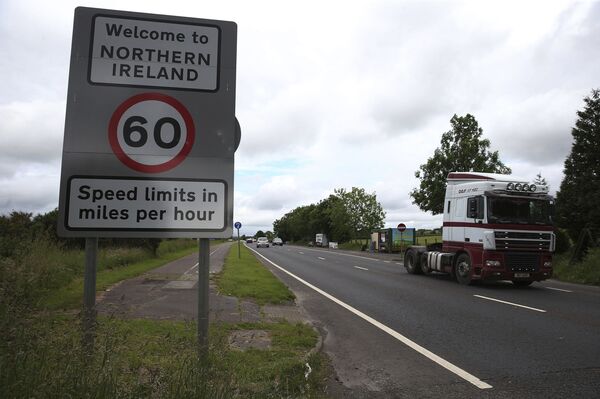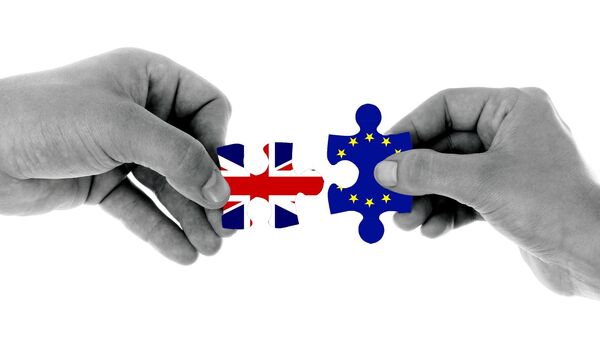This week marks three months since the beginning of Brexit talks, which commenced on June 19 — three months of discussion, argument, recrimination, that have not produced resolution or clarity on the major issues facing both the UK and the European Union as the former prepares to secede from the bloc.
Michel Barnier, the European Union's chief Brexit negotiator, terminated the last round of negotiations August 31 with a grave diagnosis — neither side had made "any decisive progress" on the key issues inherent in the United Kingdom's withdrawal from the bloc.
Article 50 negotiations just started. #Brexit pic.twitter.com/xxbt5ayrqz
— European Commission (@EU_Commission) June 19, 2017
While his UK counterpart, David Davis, spoke more positively of having made "concrete progress," he did not elucidate on what had been achieved.
The EU insists these areas must be resolved before talks can progress to trade and the pair's future relationship.
While quite an ambitious project, both sides were initially confident resolution could be achieved by October — now, neither are remotely certain.
"We are quite far from being able to say sufficient progress has taken place-not far enough for me to be able to say to the European Council we can start to discuss the future relationship," Barnier said.
Barnier says David Davis did not regard his direct involvement in negotiations as his priority — #EU Commission minutes from July #Brexit pic.twitter.com/phfDfrbtMT
— Andy Bell (@andybell5news) September 7, 2017
The UK's negotiators have argued issues such as the Irish border are intimately connect to both sides' future relationship, and making progress on one necessitates making progress on others.

Whatever the truth of the matter, a lack of resolution does not amount to a lack of Brexit — according to Article 50, the UK must exit the EU by March 2019, deal or no deal.
'Cliff Edge'
If no resolution is reached, the UK could face a "cliff edge" Brexit — no deal on the terms of the UK's withdrawal and no deal on the UK's relationship with the bloc, with EU citizens residing in the UK and UK citizens based in the EU left lingering in legal limbo.
Such an eventuality is in neither side's interests, but the UK arguably has more to lose.

Prime Minister Theresa May has previously expressed pugnacity at such a prospect, infamously stating in January that no deal was "better than a bad deal."
While fighting words indeed, few if any in Brussels were likely intimidated by the ultimatum — as noted by academics and think tanks, such as the Center for European Reform — no deal would in fact be far worse than a bad deal.
After all, were the UK to be unceremoniously ejected from the EU without a deal of any kind, EU tariffs would immediately be payable on all imports from Britain — these average about 4 percent, but can be as high as 14 percent in some sectors. The UK would also be compelled to impose tariffs on its imports from the EU.
Britain would also exit the EU Customs Union, meaning the UK would face the EU's common external tariff, so all British exports would face EU tariffs.
Moreover, firms unable to comply with a wide range of new, harsher regulations would be forced to cease exporting to the EU.
Many UK products would no longer be accredited for sale across the EU, including chemicals and pharmaceuticals, and UK airlines would no longer be allowed to fly to EU member states, because the UK's airline authorizations would no longer be recognized by the EU.
Perhaps most ominously for financial services-dominated Britain, firms would lose their passporting rights overnight, leading to a sharp fall in financial services exports to the continent.
"It must not come to this". Pleased @CommonsTreasury
— ABI (@BritishInsurers) September 18, 2017
has spoken up on the issue of cross-border contracts & #Brexithttps://t.co/TpifyYhsBG
Uncertain Times
Despite the lack of agreement on any of the withdrawal issues discussed to date, such an apocalyptic scenario is far from certain.
With only two rounds of talks left prior to the October EU summit — during which it will be decided if talks can proceed to trade — the prospects of securing agreement on all three major initial divorce issues appear somewhat bleak.
Moreover, the longer discussions on the primary triumvirate drag, the less time negotiators have to discuss other issues of importance.
In any event, talks are scheduled to recommence September 25.





